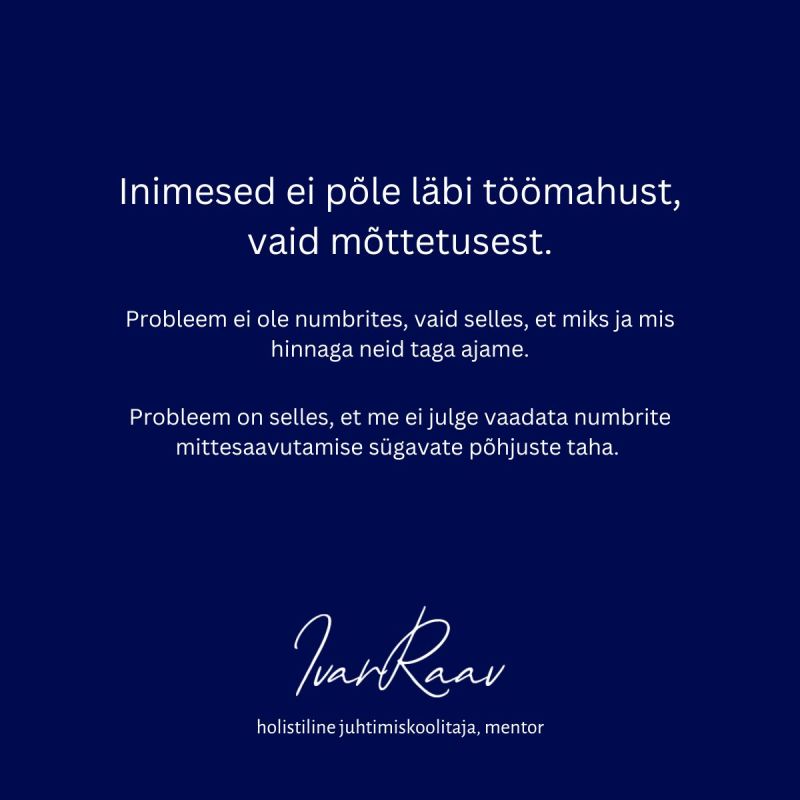The results are good at best, the people are smart, the processes are in place, but still something is out of place. There is a tension in the air that goes unmentioned, there is a lot of talk in meetings, but not about what really matters. The feedback culture is polite but not honest. People are afraid of losing market share, profitability, money, time, their jobs. The management culture is professional but not alive, producing only business as usual growth with no inspirational force.
These are signs of invisible discrepancies deeply rooted in our collective consciousness. Estonians know how to survive – to be good and hard-working, to make an effort and not stand out too much. But success and the creation of new value require visibility, risk and an openness to deep honesty.
And this is what we avoid most. There is a national background to this, which can be explained by our history, and by the reproduction of fears in the media, which has just been nicely referred to in a scientific article. This fear of losing one’s job, for example, is the contiguity of work. It has become like the greatest corporate motivator. Not a real motivation, of course, but a superficial one.
Thus is born the silent corporate crisis: false harmony, fatigue and meaninglessness.
💡The solution is not another strategy, training or new motivation programme or package. Instead, the solution starts with awareness – with understanding the unseen.
If “being seen” is a hidden expectation of organisational culture, the next level of leadership culture is “daring to be seen”.
This means, for example, simple practical expressions such as:
– the meeting is no longer a place to share opinions and experiences, but a place to practice honesty;
– feedback is no longer a duty, but an expression of courage;
– the role of the leader is no longer to know everything, but to create a space where others are allowed to think and, more importantly, to feel emotion.
Deeper change begins when the leadership community is ready to look at patterns that are mostly invisible – those that live in our national psyche but manifest themselves in organisations on a daily basis in the form of various recurring problems.
Some of the symptoms: some positions are difficult to fill or people don’t stay in them, there are constantly difficult communication situations between teams or team members, managers change too often, 1-1 conversations are only about work and not about the person, there is no talk of “elephants in the room”, there is a push to keep alive projects that everyone already knows are not working, there is constant dissatisfaction with pay, etc.
The solution is not classic management or team training. It is a co-created and co-evolving space where people dare to look at everything that has been done so far from a completely new angle, because they are really interested in the solution. I’m a lucky person to have been able to support just such clients lately, who want to look beyond the conventional approach and ask why we haven’t been able to solve it so far and what has been overlooked.
The world belongs to the brave!

